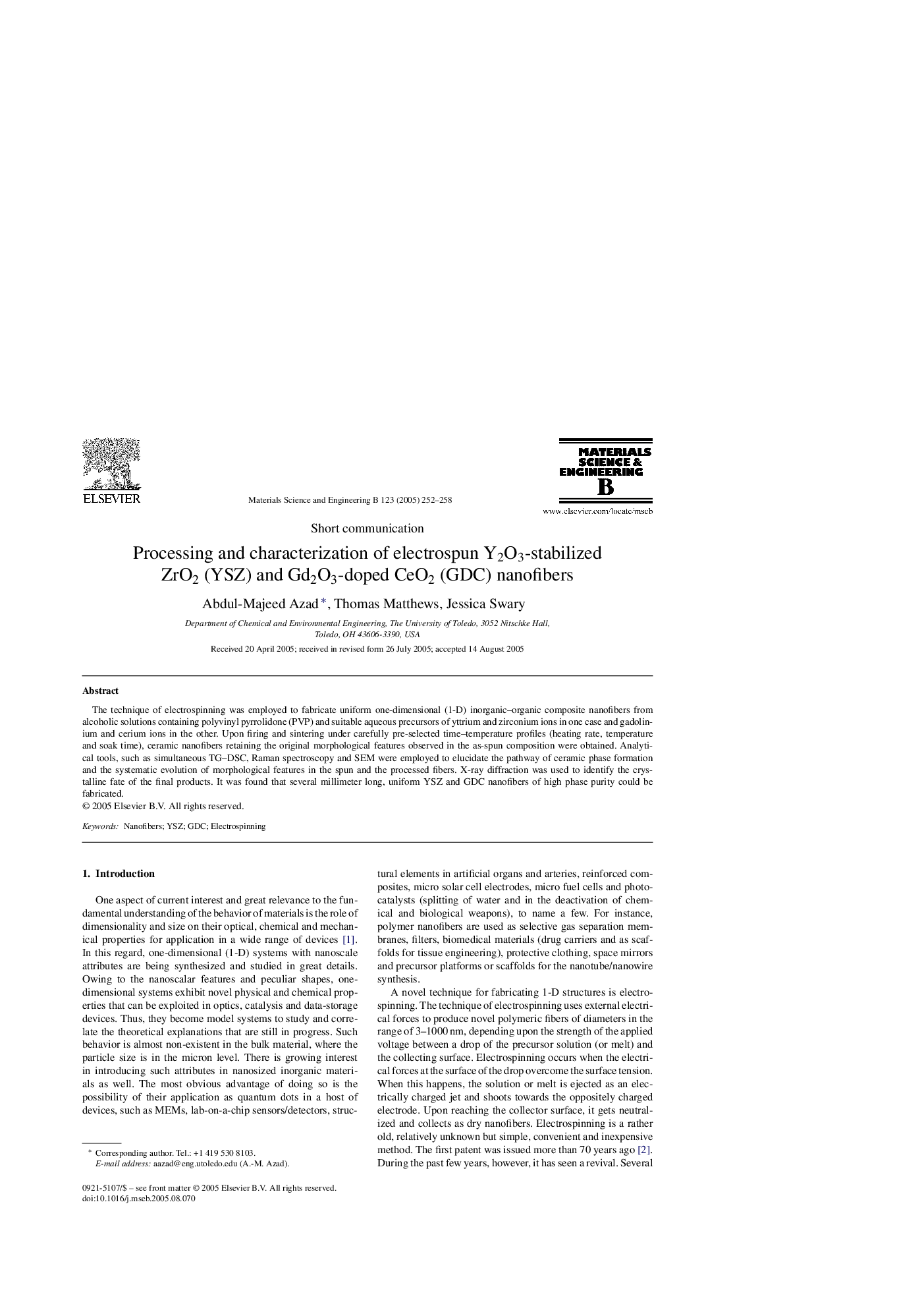| Article ID | Journal | Published Year | Pages | File Type |
|---|---|---|---|---|
| 10639972 | Materials Science and Engineering: B | 2005 | 7 Pages |
Abstract
The technique of electrospinning was employed to fabricate uniform one-dimensional (1-D) inorganic-organic composite nanofibers from alcoholic solutions containing polyvinyl pyrrolidone (PVP) and suitable aqueous precursors of yttrium and zirconium ions in one case and gadolinium and cerium ions in the other. Upon firing and sintering under carefully pre-selected time-temperature profiles (heating rate, temperature and soak time), ceramic nanofibers retaining the original morphological features observed in the as-spun composition were obtained. Analytical tools, such as simultaneous TG-DSC, Raman spectroscopy and SEM were employed to elucidate the pathway of ceramic phase formation and the systematic evolution of morphological features in the spun and the processed fibers. X-ray diffraction was used to identify the crystalline fate of the final products. It was found that several millimeter long, uniform YSZ and GDC nanofibers of high phase purity could be fabricated.
Keywords
Related Topics
Physical Sciences and Engineering
Materials Science
Electronic, Optical and Magnetic Materials
Authors
Abdul-Majeed Azad, Thomas Matthews, Jessica Swary,
